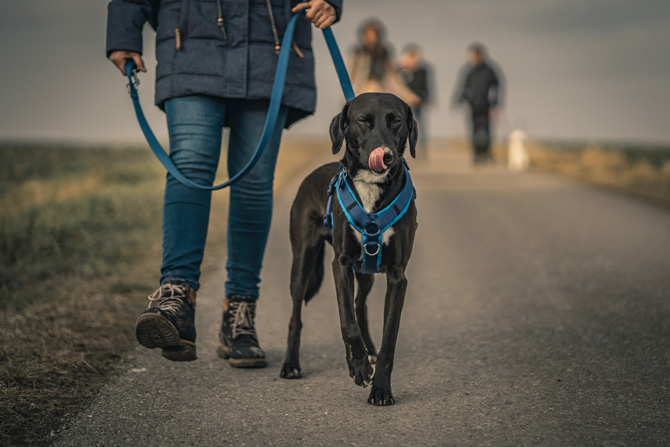From unpredictable weather and last-minute cancellations to chasing and recording payments, running a dog walking business is no walk in the park! However, if it’s something you have your heart set on, then go ahead and chase your dream. Just be sure to do your research and understand the challenges you might face so you can address them head-on.
6 challenges dog walking businesses face
There’s no denying, a dog walking business can be lucrative and enjoyable. So, if you are thinking seriously about launching your own professional dog walking gig make sure you start off on the right foot. Here are a few hurdles to consider.
1. People who dislike dogs
Yes, believe it or not, some people ardently dislike dogs. Some of these people will take every opportunity to convey their dislike of dogs. Perhaps they come and tell you off for walking a dog off-leash – even though you’re in a council-approved off-leash park!
They may “tut-tut” at you when your dog does his business — even though you are in the process of pulling out a poop bag. Someone who hates dogs might even yell at you for stopping outside their house — even though you’re actually on the public footpath, not their driveway!
2. The weather
Winter can be a tricky time for professional dog walkers and keeping your dog walking business going can take a bit of effort. Sure, on the one hand, you might attract new clients. For example, owners who dislike walking their dogs in dark, chilly weather may choose to outsource the job. Yet, on the other hand, it’s not much fun for dog walkers to have to brave the winter cold.
There’s also the fact that people often choose to holiday in the winter, to break up the monotony of dark days and cold nights and seek out some sunshine. However, in many cases, COVID-19 has put a stop to holidays—which might mean less income for your dog walking business.
Furthermore, more people than ever before are now working from home, which might result in a drop off in business. After all, less time commuting means more available time to take the dog for a walk.
Of course, summer is a glorious time of the year to go for dog walks but even then there are challenges. What happens on those 40-degree days? There’s a greater risk of burnt paws, dehydration and sunburn. The last place you want to find yourself is awkwardly explaining to a client why her dog is suffering from heatstroke!
3. Difficult clients
Constantly dealing with difficult clients can be soul destroying. They may call you at unsociable hours. Perhaps they are constantly complaining or frequently cancel your services at the very last minute. Maybe you have to chase them for money, as they never pay on time. Nonetheless, they make running your dog walking business much harder than it needs to be.
Certainly, it’s important to be a dog person if you intend to run a dog walking business, but you also need to be a people person. Managing people can be exhausting, but it’s a trait you need. It all comes down to building rapport, sticking to your end of the deal, showing empathy and finding solutions that work for you and your client.
4. Losing a client
There are many reasons why you might lose a client, but it’s never easy. It might be that the dog has become so old that he doesn’t need long daily walks. Or maybe your human client moves away and, as such, can no longer use your services.
Sadly, losing a client, despite the reason, can be devastating—financially and emotionally. It’s worthwhile having a financial buffer in place for this very reason. You can use the buffer to keep your income consistent while you look for new clients.
5. Sick dogs
Apart from the fact that seeing your furry friend feeling unwell can be upsetting, a sick dog can add to your stress. Walking a dog with an upset tummy can mean multiple poop pick-ups. Plus there’s the worry he might have an accident on your client’s carpet, in your home, or in your vehicle – depending on your arrangements.
Indeed, you might also be required to walk a dog that is recovering from illness or managing an injury but still requires adequate exercise. This can be a worry, as you don’t want an accident to occur that could make him worse.
6. Loss of income
Running a dog walking business requires a certain level of fitness. Without a doubt, it requires you to be able to walk at a fairly good pace. So, what happens if you have an accident and end up breaking a leg or you suffer a nasty illness that stops you from working? This type of unexpected event could financially crush your business.
By taking out Personal Accident Insurance you can protect yourself against unforeseen circumstances and events out of your control. Protecting your flow of income while you get back on your feed might be the difference between keeping your business afloat and watching it sail into oblivion.
Related posts:
- 5 reasons why dog walking is a healthy career choice
- How much does dog walking insurance cost?
- How to write a dog walking contract
Image source: Unsplash.com
Latest posts by Liz Walden (see all)
- Pet health: Medicinal cannabis for pets - December 27, 2021
- What pet business insurance do I need? - November 17, 2021
- Pet sitters: how to take time off - November 15, 2021










Leave A Comment